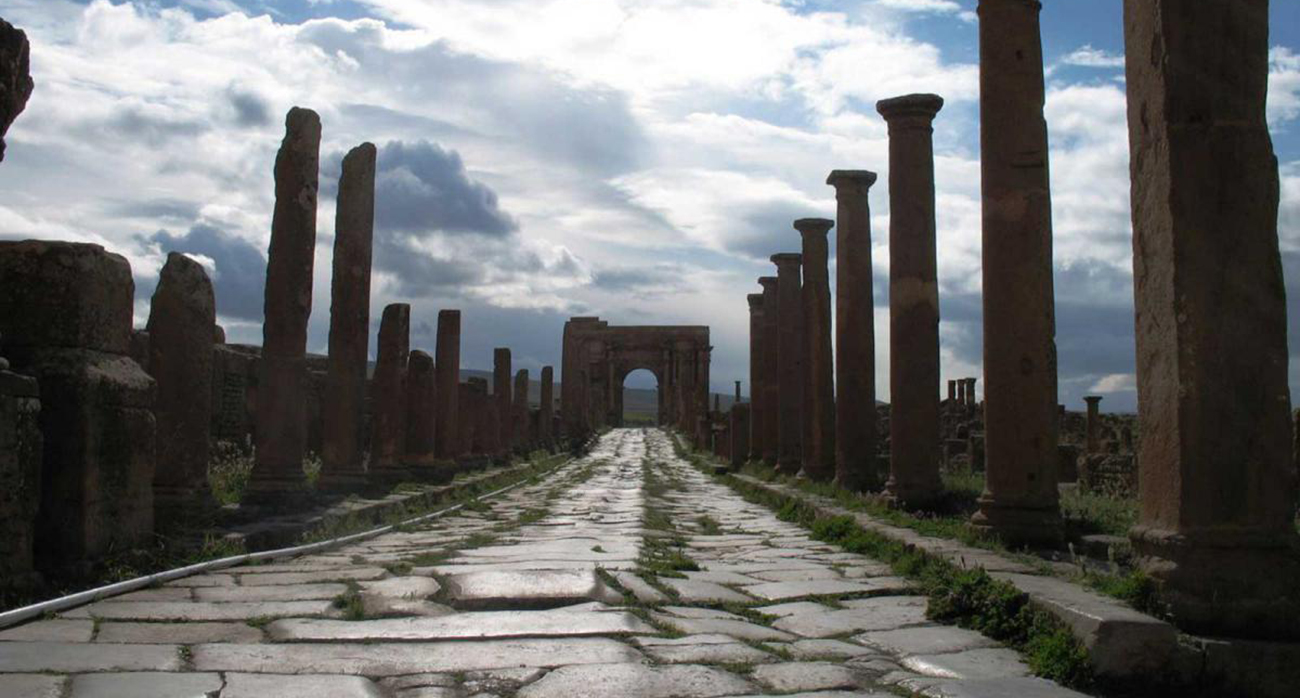BOETHIUS: "DE CONSOLATIONE PHILOSOPHIAE": BOOK I. Introduction: Having just translated a passage from St. Augustine of Hippo, Sabidius has also realised that he has similarly failed to honour, in his translations, the works of the almost equally renowned Anicius Manlius Severinus Boethius (consul in 510 A.D.), whose great work, "The Consolation of Philosophy", which he wrote in prison in 524 A.D., while awaiting the death penalty, was one of the most admired and frequently read books in Late Antiquity and the Middle Ages. Sabidius has therefore put this shortcoming to...
Augustine: “De Civitae Dei”: Book IV
ST. AUGUSTINE: DE CIVITATE DEI CONTRA PAGANOS ("ON THE CITY OF GOD AGAINST THE PAGANS"): BOOK IV. Introduction: The item translated below is the first extract from the works of St. Augustine of Hippo that Sabidius has translated. This is partly because, with the exception of some selected letters written by Augustine, none of his writings, including both his famous "Confessions" and "City of God", are included in the texts of the Perseus website maintained by Tufts University, upon which Sabidius has so often depended for support, and partly, perhaps,...
Seneca: De Clementia (“On Mercy”)
Introduction: Lucius Annaeus Seneca (c. 4 B.C. - 65 A.D.), sometimes known as Seneca the Younger, was born in Corduba in Spain, but came to Rome as a very young child and resided there with his father, Seneca the Elder (54 B.C. - 39 A.D.), a well-known writer and orator. In 41 A.D. he was exiled to Corsica by the Emperor Claudius, because of an alleged affair he had with Claudius' niece, Julia Livilla, but in 49 he was allowed to return to Rome at the instigation of Claudius'...
Ovid: Fasti: Book I: January
Translator's introduction: (a) To the work as a whole. The "Fasti" is a six-book Latin poem by Ovid concentrating on the Roman calendar or 'Fasti', and each of its separate books deals with the first six months of the year, January to June. The books contain some brief astronomical details, but their principal sections discuss the religious festivals of the Romans, the rites which were involved in them, and their mythological explanations. The poem contains much Roman mythological and religious lore which would otherwise have been lost. The poem was...
Imparasyllabic Nouns of the Third Declension and Exceptions to the Rules for the Quantity of Final Syllables in Latin
Imparasyllabic nouns are those which have one more syllable in their Genitive Singulars than in their Nominative Singulars. The majority of such nouns are in the Third Declension, and within this declension there are two groups, or categories, of nouns (and related adjectives) which are of significance in relation to the length of syllables at the end of words, i.e. final syllables: 1) Imparasyllabic Third Declension nouns with nominative Singulars ending in '- es', which have a short penultimate syllable in the Genitive Singular. In almost all Latin words...
Translator's Introduction. i) Catullus: details of his life. Gaius Valerius Catullus was born to an equestrian family in 84 B.C. at Verona, then in Cisalpine Gaul. His father owned a villa at Sirmio on Lake Garda, where he entertained Julius Caesar when he was wintering south of the Alps during his governorship of Gaul. Catullus was on the staff of Gaius Memmius in Bithynia in 57-56, and before returning to Italy he travelled to the Troad to pay his respects to the grave of his beloved elder brother. He,...
Latin Quotations Recalled by Flashman
New Testament: Extract from the First Letter of St. Paul to The Corinthians: Chapter 15, Verses 50-57
Introduction. The fourth and last book of Horace's "Odes", was published in 13 A.D., some ten years after the publication of the other three, and they constitute the last of his published works. It is clear that he resumed the writing of lyric poetry only at the instance of Augustus and in order to celebrate the victories of the emperor's step-sons, Tiberius and Drusus Nero. He probably did so with some reluctance, as the beginning of the first ode in the book strongly suggests, and the second ode provides...
Horace: “Odes” Book II
Introduction. Of the three books of "Odes" published by Horace in 23 B.C., this, the second book, is the shortest, containing only twenty poems. It is also the most uniform in form, as eighteen of these twenty are composed in the Aeolian metres of Alcaeus (12) and of Sappho (6). The tone of these odes is also the most serious in tone, and the most limited in range, with only three (viz. carmina 4, 5 and 8) dealing with themes of love. The text for this translation is taken from...


